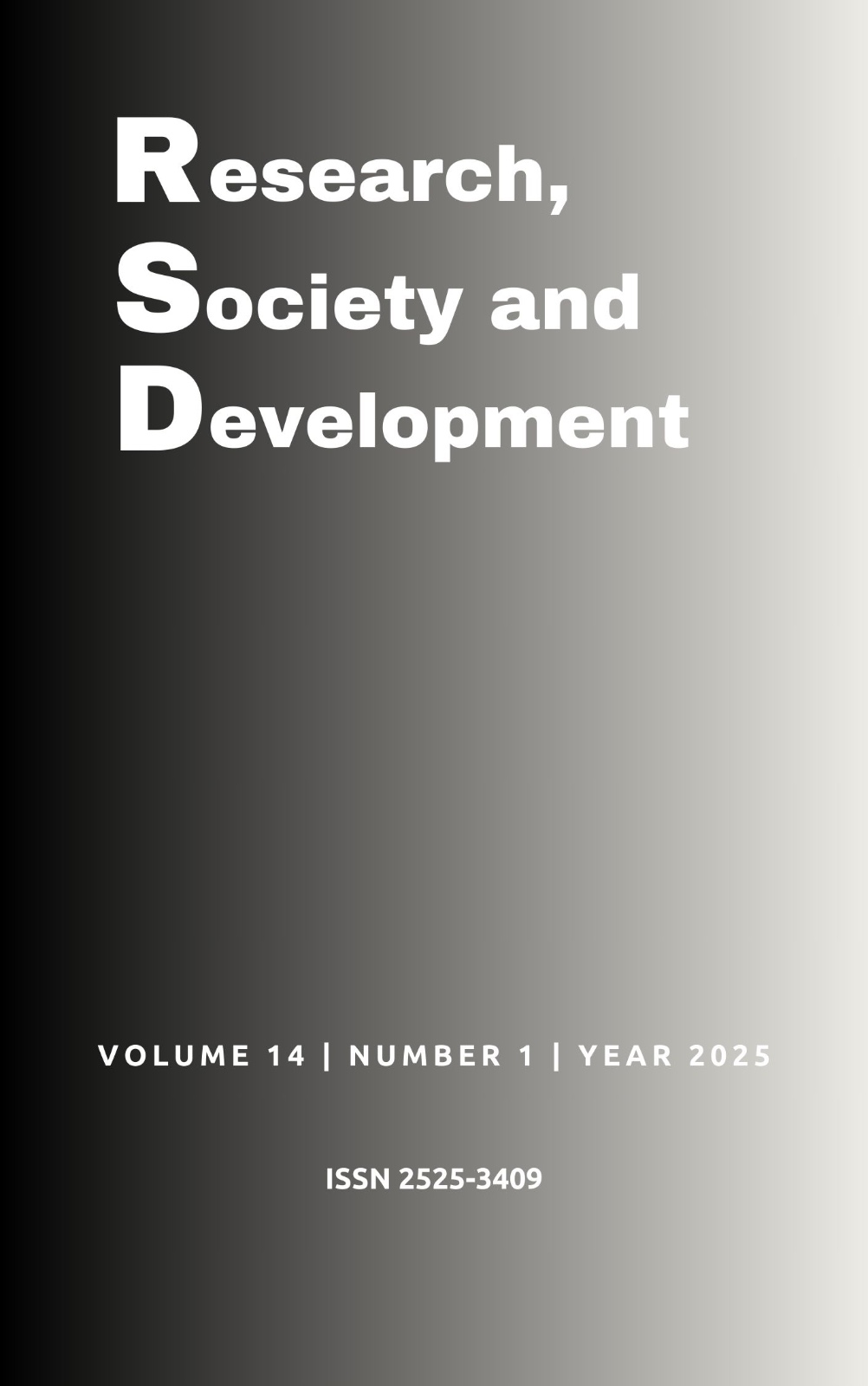Sustainable Development Goals as a normative framework for anti-poverty actions and environmental vulnerability
DOI:
https://doi.org/10.33448/rsd-v14i1.48107Keywords:
Multidimensionality; Public Policies; Sustainable Development.Abstract
This study is based on the authors' concerns about multidimensional poverty. Amartya Sen advocates five types of freedom so that development can be achieved and, consequently, the forces of deprivation can be eradicated. The aim of this article is to make the case that, in addition to the five types of freedom advocated by Amartya Sen, governments and non-governmental institutions have a fundamental role to play in planning and implementing public policies aimed at sustainable development in rural and urban areas. The study was carried out between the years 2022 and 2024 and uses descriptive documentary and bibliographical research as its materials and methods. As a result, it seeks to align the conceptualization of public policies with the normative frameworks of the Sustainable Development Goals (SDGs), expanding the possibility of effective action by integrating economic, social and environmental dimensions in tackling the causes of poverty. Environmental sustainability, in turn, plays a crucial role, since the poorest are the most affected by changes in ecosystems, which reinforces the interdependence between human well-being and sustainability.
References
Alkire, S. (2005). Needs and capabilities. Royal Institute of Philosophy Supplements, 57, 229–252.
Alkire, S., & Foster, J. (2010). Counting and multidimensional poverty measurement (OPHI Working Paper No. 37). University of Oxford.
Anand, S., & Sen, A. (2003). Concepts of Human Development and Poverty: A Multidimensional Perspective. (S. Parr & A. Kumar, Eds.). Oxford University Press.
Bucci, M. P. D. (2013). Fundamentos para uma teoria jurídica das políticas públicas. São Paulo: Saraiva.
Casarin, S. T. et al. (2020). Tipos de revisão de literatura: considerações das editoras do Journal of Nursing and Health. Journal of Nursing and Health. 10 (5). https://periodicos.ufpel.edu.br/index.php/enfermagem/article/view/19924.
Chrespino, A. (2016). Introdução ao estudo das políticas públicas: Uma visão interdisciplinar e contextualizada. Rio de Janeiro: Editora FGV.
Codes, A. L. M. de. (2008). A trajetória do pensamento científico da pobreza: Em direção a uma visão complexa. Texto para discussão (No. 1291). IPEA.
Dye, T. (1984). Understanding public policy. Prentice Hall.
Farah, M. F. S. (2021). Teorias de política pública. Revista @mbienteeducação, 14(3), 631–665.
González, F., Santos, M., & London, S. (2021). Multidimensional poverty and natural disasters in Argentina (1970–2010). Journal of Human Development and Capabilities. https://doi.org/10.1080/19452829.2021.1910220
Hill, M. (2006). Implementação: uma visão geral. In E. Saravia & E. Ferrarezi (Orgs.), Políticas públicas: Coletânea (Vol. 2). ENAP.
Lacerda, F. C. C. (2009). A pobreza na Bahia sob o prisma multidimensional: uma análise baseada na abordagem das necessidades básicas e na abordagem das capacitações [Dissertação de mestrado, Universidade Federal de Uberlândia]. Repositório da Universidade Federal de Uberlândia.
Marinho, E., & Soares, F. (2003). Impacto do crescimento econômico e da concentração de renda sobre a redução da pobreza nos estados brasileiros. In 31º Encontro Nacional de Economia, Porto Seguro, BA. Anais. Belo Horizonte: ANPEC.
Millennium Ecosystem Assessment, 2005. Ecosystems and Human Well-being: Synthesis. Island Press, Washington, DC.
Mattos, P. C. (2015). Tipos de revisão de literatura. Unesp, 1-9. https://www.fca.unesp.br/Home/Biblioteca/tipos-de-evisao-de-literatura.pdf
Pereira A. S. et al. (2018). Metodologia da pesquisa científica. [free e-book]. Editora UAB/NTE/UFSM
Pasanen, T., Lakkala, H., Yliluoma, R., Tuominen, V., Jusi, S., Luukkanen, J., et al. (2017). Poverty–environment nexus in the Lao PDR: Analysis of household survey data. Development Policy Review, 35(3), 349–371.
Pessotti, F. C. C. L. (2020). Políticas sociais e dinâmica econômica e suas relações com a pobreza multidimensional: Uma análise para os pequenos municípios da Bahia [Tese de doutorado, Universidade Federal da Bahia]. Repositório da Universidade Federal da Bahia.
Rocha, S. (2006). Pobreza no Brasil: afinal de que se trata? Rio de Janeiro: FGV.
Rother, E. T. (2007). Revisão sistemática x revisão narrativa. Acta Paul. Enferm. 20 (2). https://doi.org/10.1590/S0103-21002007000200001.
Salama, P., & Destremau, B. (2001). O tamanho da pobreza: economia política da distribuição de renda. Petrópolis: Editora Garamond.
Secchi, L. (2015). Políticas públicas: Conceitos, esquemas de análise, casos práticos (2ª ed.). São Paulo: Cengage Learning.
Sen, A. (2000). Desenvolvimento como liberdade. São Paulo: Companhia das Letras.
Sen, A. (2010). Desenvolvimento como liberdade (2ª ed.). São Paulo: Companhia das Letras.
Stewart, F. (1989). Basic needs strategies, human rights, and the right to development. Human Rights Quarterly, 11(3), 347–374.
Thiry, G., Alkire, S., & Schleicher, J. (2018). Incorporating environmental and natural resources within analyses of multidimensional poverty. OPHI Research in Progress, 50a.
Downloads
Published
How to Cite
Issue
Section
License
Copyright (c) 2025 Givaldo Correa dos Santos Neto; Monick Midlej do Espírito Santo; Andréa da Silva Gomes

This work is licensed under a Creative Commons Attribution 4.0 International License.
Authors who publish with this journal agree to the following terms:
1) Authors retain copyright and grant the journal right of first publication with the work simultaneously licensed under a Creative Commons Attribution License that allows others to share the work with an acknowledgement of the work's authorship and initial publication in this journal.
2) Authors are able to enter into separate, additional contractual arrangements for the non-exclusive distribution of the journal's published version of the work (e.g., post it to an institutional repository or publish it in a book), with an acknowledgement of its initial publication in this journal.
3) Authors are permitted and encouraged to post their work online (e.g., in institutional repositories or on their website) prior to and during the submission process, as it can lead to productive exchanges, as well as earlier and greater citation of published work.

